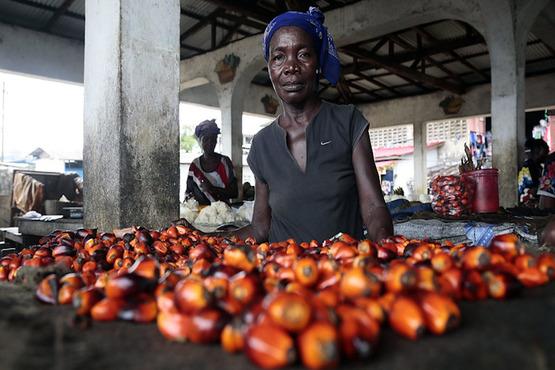Project Overview
Although forest-rich, Liberia suffers from extreme food insecurity, and its natural ecosystems, exacerbated by the effects of climate change, have been threatened by logging, mining and agriculture. Since 1975, 15 percent of forest cover – which makes up 43.3 percent of Liberia’s land surface – has been lost overall. The government of Liberia has advanced its sustainable development agenda through various policy initiatives, but land-use planning is currently occurring at local levels on an uncoordinated basis without harmonization across the landscape. Through the proposed project, these efforts will be harmonized and leveraged for national level planning. Additionally, Liberia is participating in the Good Growth Partnership, and has made significant progress toward minimizing deforestation driven by palm oil expansion in the country. To further this work, the proposed project will use palm oil and cocoa, which already have market-driven sustainability initiatives and can provide opportunities for investment by the private sector to potentially improve market access and ensure sustainable production. The project will leverage the growing experience of organizations across Liberia that are piloting innovative approaches, as well as build on private sector partnerships with companies interested in shaping their investments to promote sustainable development.
Commodities:
Palm oil, cocoa
Area Covered:
2,741,066 hectares (365,000 hectares direct; 2,376,066 hectares indirect)
Executing Partner:
Conservation International

Project features
The project will involve the development, adoption and implementation of landscape land-use plans while promoting sustainable production practices for food crops, palm oil and cocoa, supported by responsible value chains.
Biodiversity loss reduction and restoration of natural habitats will be a focus, along with management, coordination, collaboration, and monitoring and evaluation. It will engage the private sector by encouraging improvement of land allocation and use and to adopt and jointly implement land-use plans with other sectors. It will also develop climate-smart partnerships with the private sector and other actors as well as attract private sector investment and innovative financing.
The public sector will be engaged through the adoption of joint land-use plans with other sectors and through recommendations to the government on fiscal, financial, and trade policies that affect food production systems.
It is also expected to include national and local government agencies within project preparation and implementation phases, as well as to invest in development of national-level land-use plans that address biodiversity, sustainable food production and land restoration.

Vendor selling palm seed oil at market, Liberia. By Nyani Quarmyne/IFC (Panos)







